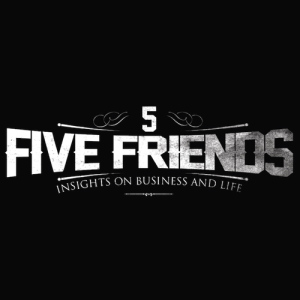
What Is Your Best Habit?
Five best-selling authors, Speaker Hall of Fame recipients, internationally-acclaimed business consultants and best buddies give their insights on business and life.
From Randy Pennington:
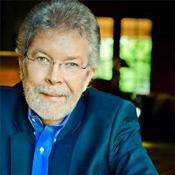
This is a difficult question for me. I think I do pretty well at staying current in order to stay relevant in my professional life. I challenge myself to examine different viewpoints. I haven’t missed a daily workout more than 50 times in the past 15 years. And, I make a conscious effort to let my wife know that I love her every day.
Those are all pretty good habits. But, I’m not sure that any of them are my “Best” one. In fact, I am the last one of the Five Friends to turn in my piece because I have been thinking about this question for days. This confirms what my friends know: one of my worst habits is a tendency to over-think stuff.
So here is what I believe to be my best habit: I never give up on trying to be better at things that are important to me. It’s not that I’m a self-development junkie. I simply am rarely convinced and sometimes paranoid that my best today won’t be up to my own standards tomorrow.
I haven’t always had this habit. But, I’ll keep it until I overanalyze it out of existence.
Randy Pennington helps leaders deliver positive results in a world of accelerating change. To find out more, go to www.penningtongroup.com.
From Mark Sanborn:
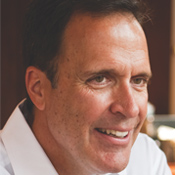
My colleagues have shared several habits that I also benefit from. Thinking and reading are critical for me as a speaker and author, but critical for anyone who wants to lead well and live fully.
Another habit that has served me well for my entire adult life is exercise.
I expect that to elicit a ho-hum response. Everyone knows it is a good idea but far fewer do it regularly.
As an overweight kid I used running to drop the extra weight. The discipline of running, I learned, could be applied to other areas of my life. And that’s a key benefit of exercise: it develops discipline.
It has also been shown to be as effective as medication in treating some mood disorders. It also enables quicker recovery from illness and setbacks.
And it doesn’t have to be onerous. I no longer run or bike the long distances I once did. Now my goal is 20 minutes of activity a day, whether lifting, running or cycling.
And if I don’t feel great about exercising when I start, I always do after I finish.
Mark Sanborn is president of Sanborn & Associates, Inc., an idea studio for leadership development. He is an award-winning speaker bestselling author of books including, The Fred Factor. For more information and free resources, visit www.marksanborn.com.
From Larry Winget:
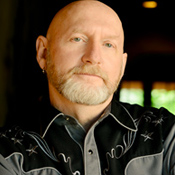
I stay current. One of the biggest issues facing us today is that people don’t choose to make a habit of informing themselves about what is going on in the world. They have decided they are somehow above it all and that what is “trending” is beneath them. No, it’s what keeps you relevant. Being uninformed makes you irrelevant. I choose relevance so I choose to stay current.
I do my best to know what is going on in the world, my country, my state and my city. I work to be informed about government, health, finance, business, entertainment, fashion and just about every other area. I stay informed by reading blogs, articles, magazines and books. I start my day with GoogleNews and YahooNews as well as skimming the news channels for the news of the day. I seek out a variety of opinions on all topics to broaden my understanding. I talk about what’s going on with friends like the guys who write this blog in order to surround myself with others who are current and have different opinions. This habit allows me to have better conversations with my online followers, my friends and my audiences.
Larry Winget, the Pitbull of Personal Development®, is a six-time NYT/WSJ bestselling author, social commentator and appears regularly on many national television news shows. To find out more, go to www.LarryWinget.com.
From Scott McKain:
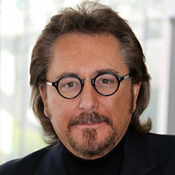
My best habit is daily thinking.
You’re probably saying, “Hey – I think every day, too!” However, I mean that I have developed the habit of making time each morning for contemplation and creativity.
I heard an executive say to his team, “Our problem is that we think about what we’re doing – but we aren’t thinking about what we’re doing.” While that sentence isn’t elegant, my guess is you understand what he was attempting to convey.
Most of us think about how we can execute what is required to accomplish our assignments. Few, however, contemplate on the bigger issues facing our organizations and the customers we seek to serve.
Want to develop the habit of daily contemplation? Here’s my advice: In the quiet of the morning, take a legal pad and consider the bigger issues that our daily stress and obligations often prevent us from considering. Simply write down what you’re thinking in a “stream of consciousness” manner. You’ll be amazed how your creativity and insight will flourish.
Deep thinking is like building a muscle – the more you exercise your mind in a habitual manner, the stronger it will become. Try it! It will become a great habit for you, too.
Scott McKain teaches how organizations and individual professionals can create distinction in their marketplace, and deliver the “Ultimate Customer Experience ®.” For more information: www.ScottMcKain.com
From Joe Calloway:
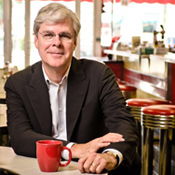
I don’t want to be repetitive, so I will think of it as reinforcement to say that, like Larry, I stay current. I read. I read everything. Reading, especially reading that with which I tend to disagree, has benefits too long to list. So that’s my first helpful habit.
But since Larry already claimed that turf, here’s another, equally beneficial, useful, and empowering habit. I get up early. For me that’s 5:00AM on a normal day, 4:00AM during times in which I’ve got a project on my plate that requires maximum clarity and creativity.
If it’s the weekend and there is absolutely nothing to do, I get up early. I can’t help it, I can’t quit it, and I don’t want to.
Scott talked about doing his daily contemplation in the quiet of the morning. I totally get it. For me, the hour before sunrise is the absolute best time of day. My thoughts are clear, I am at my most creative, and it’s when I do my best work.
Whatever your “best” time of day is, I encourage you to be intentional about the habit of putting that time to good use. Don’t waste it.
Joe Calloway helps great companies get even better. www.JoeCalloway.com


Boys, my habit is to learn, unlearn and relearn. It’s a part of staying on top of current thinking, discoveries and sometimes validates the old one. I don’t want to be locked into one mindset and never budge if there is proof of better.
Love this question, Larry – and it’s one I ask of my colleagues all the time. My best habit is that of practising gratitude – for the past 18 years, I have ended my day writing in my Gratitude Journal (from the time I saw Oprah Winfrey interview Sarah Ban Breathnach on the topic!!) – it has served me well, keeps me humble, keeps me focused and gives me perspective.
Keep up the great blog posts – they do keep me thinking.
Pat Mussieux (from ‘on the road’ in Zambia)
My best habit has always been to resolve a dispute to a comfortable and agreed conclusion. Whether it is with a co-worker, friend, or my wife, I will always pursue a harmonious conclusion. I have found the result of this habit to be; co-workers that enjoy working with me, friends that stick by me; and a wife that loves me.
There have been many heated conversations with co-workers or my wife where at some point they say: “just forget it, I don’t want to talk about it anymore” If it was worth engaging in a heated discussion then the topic is important to both parties…it is worth the time to come to an agreed conclusion. This type of conclusion is usually resolved by both parties clearly seeing the points of view. I always take the time in the discussion to see where the other person is coming from, and then I relay my point of view. It’s amazing how so many arguments spawn from just a lack of seeing the others point of view and why they are pushing the issue.